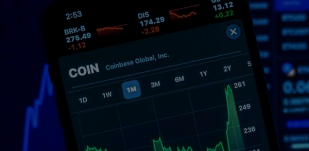International Money Transfers and How They Work
There are many reasons to send or receive money internationally, whether you're buying or selling property abroad, making a one-off payment to family or friends, or covering your expenses as an expat. You'll need to arrange an international money transfer to send money abroad and handle the foreign exchange into the local currency. So, what is an international money transfer? How does it work?
This guide looks at how international money transfers work and how to find the best option for your needs.
How does an international money transfer work?
To understand how the world of currency exchange works, you should know that instructions to make an overseas payment are sent from your bank or transfer provider to your recipient’s account, often via intermediary banks.
You can use a bank or a specialist money transfer provider to make an international transfer. Depending on the provider, you may be able to make the transfer online, over the phone, at a branch, or using a mobile app. While your bank might allow you to send an international money transfer directly from your existing account, they may also charge high commission fees and transaction fees to do so.
So, what's the process for making an international money transfer? Here are the steps you need to follow to send your payment abroad safely.
1. Research exchange rates and fees
Each bank or transfer provider is likely to quote a different exchange rate. Rates change by the second in the foreign exchange markets. You can save money by checking the mid-market or interbank rate for the currency you need to send and comparing those with the rates offered by providers to find the best deal for your money.
Make sure you check the terms and conditions before you make a transfer, as some providers charge additional fees that can significantly increase the total cost of your payment.
Transfer charges are typically calculated as a percentage of the money you send and vary depending on the currency. Some providers hide their fees in poor exchange rates. Specialist transfer providers are more likely to provide quotes closer to the mid-market rate, typically charging lower or no fees and offering more competitive exchange rates.
Some currency providers will allow you to use a credit or debit card to transfer money rather than your bank account, however, again they may charge additional fees for you to do this.
2. Set up your account
Whether you decide to use your bank to transfer funds or use a dedicated money transfer platform, you’ll need to set up an account to make international payments. If you’re paying online or through a mobile app, register your account and navigate to the global payment section to start a new transfer (you can register with Clear Currency here).
3. Enter the recipient’s account details
To make sure your payment gets sent to the right person, you will need to provide detailed account information for each transfer:
- Recipient’s bank name and address
- Recipient bank’s Bank Identifier Code (BIC) or SWIFT code
- Recipient’s full name and address
- Recipient’s bank account number or international bank account number (IBAN)
- Payment reference or reason for the transfer
4. Select the currency and amount
Select the foreign currency you want to send to the recipient and enter the value in that currency. Check the exchange rate the transfer provider is offering to avoid inflated rates that hide commission charges.
5. Fix or target a specific rate
Transfer specialists can help you save money by giving you the flexibility to choose a forward contract to fix the exchange rate when it is favourable. With Clear Currency, you can lock in a competitive exchange rate and make the payment up to 12 months ahead.
How long does an international transfer take?
Unlike domestic payments that can happen in real-time, the international money transfer process can take several days, especially if you make the transfer via a high-street bank. How long a transfer takes will vary depending on whether you use a bank or money transfer provider and where you’ll be sending the money to or from. Transfers to countries within Europe can take one to two working days, whilst transfers further afield can take up to five working days.
So how do international money transfers work? Transfer providers typically use the Single Euro Payments Area (SEPA) or Society for Worldwide Interbank Financial Telecommunication (SWIFT) networks, allowing financial institutions to communicate money transfer information securely. The SEPA network facilitates money transfers in euros to the 36 countries in the SEPA zone, while SWIFT operates in more than 200 countries and territories worldwide, connecting more than 11,000 banks.
Every financial institution in the SWIFT network has a unique identifier of 8-11 characters, known as the BIC or SWIFT code. This is the code you need for your recipient’s bank to ensure your payment arrives in the correct bank account. SEPA transfers do not need an identifier code, only the recipient’s IBAN.
The bank or other transfer provider you use may directly communicate with your recipient’s bank via SEPA or SWIFT. Even if that is not the case, the transfer information will still have to pass through intermediary banks – which adds to the processing time. The provider and intermediary banks might also have fraud prevention processes that can extend the time it takes for the money to arrive in the recipient’s account.
Other factors can affect how long a transfer will take, including how close it is to a weekend or bank holiday, the time zones the sending and recipient banks are in, the speed at which the local bank infrastructure works, and whether there are errors in the payment details that could cause a delay.
Your transfer provider will estimate how long the transfer will take and track its status until it reaches the recipient.
How safe is an international money transfer?
It's prudent to choose an international payments provider that has a robust and safe online payments platform. It’s also crucial to make sure you use a bank or other service provider authorised by the Financial Conduct Authority (FCA), the UK’s financial services regulator.
All money transfer providers that transfer more than €3 million per month internationally must be authorised by the FCA as an Electronic Money Institution or Authorised Payment Institution under the Payment Services Regulations 2017 and the Electronic Money Regulations 2011. Service providers must uphold specific standards to ensure that their transfers are secure. Authorised companies must place client money in a safeguarding account with an approved bank.
Customer complaints about any UK establishment are handled through the Financial Ombudsman Service.
You can search for a money transfer provider’s name in the Financial Services Register to ensure it is authorised before using its services.
Make fast international money transfers with Clear Currency
At Clear Currency, we help individuals and businesses transfer money abroad quickly, with competitive rates that can help save you money.
You can use our online platform to make international payments in around 35 currencies - that's about 130 countries worldwide. We’re also regulated by the FCA so you can be sure we adhere to strict standards and rules when it comes to how we operate.
Interested to find out more? If you need advice about an exchange give us a call, and a dedicated account manager from our team will guide you through the process. Sign up for an account today.
Related Articles
How to Mitigate Foreign Exchange Risk
Currency risk can have a significant effect on the efficiency and profitability of any international business. Each exchange rate movement affects how much you receive from sales and what you pay to suppliers.
Read more
Moving to Dubai from the UK: Checklist
You’re ready for a new life overseas and have decided you’re moving to Dubai. Now it’s time to consider the various costs involved, from your visa and accommodation, to health insurance, shipping your belongings and bringing your beloved pets along too.
Read more
Currency Outlook Quarter 1 2023
Clear Currency looks back at the performance of the US dollar, euro and sterling in Q4 2022, and assesses what might be in store for Q1 2023.
Read more


